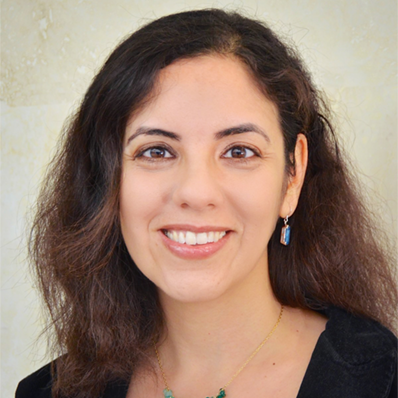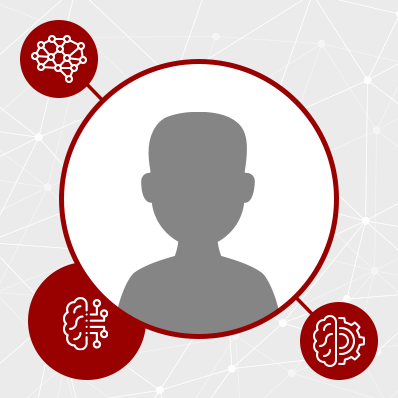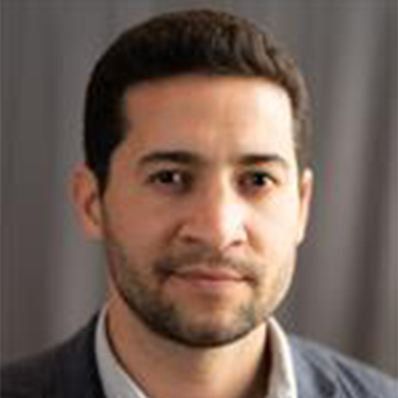Aziz-Zadeh, Lisa
Associate Professor of Occupational Science, Psychology and Neurology
The Center for the Neuroscience of Embodied CognitionWe explore how rudimentary sensory-motor areas may be intrinsically involved in processing aspects of higher cognition such as language, thought, emotions, empathy, and social communication. We study both typical populations and autism, using MRI and behavioral studies, also integrating microbiome research.
Bonaguidi, Michael
Associate Professor of Stem Cell and Regenerative Medicine
Cognitive impairment (CI) is a burdensome neurological condition that occurs during aging, Alzheimer’s disease (AD), and is a common co-morbidity in many neurodegenerative diseases, including epilepsy. Unfortunately, CI prevalence continues to accelerate due to population aging and emerging therapies only slows CI by a few months. Our research seeks to develop regenerative medicine and provide longer-lasting benefits to CI through brain restoration. We are establishing endogenous brain regeneration as a therapeutic approach for CI in pre-clinical animals and people by (1) investigating neural stem cell behavior in aging, AD and epilepsy, (2) developing computational/AI drug discovery tools for precision medicine to treat CI, and (3) partnering with physicians for human research and clinical trials to translate our findings.
Chang, Karen T.
Associate Professor of Physiology and Neuroscience
Our lab is interested in understanding how neurons communicate with high fidelity to support complex brain functions. We aim to uncover the molecular and cellular mechanisms that enable precise synaptic signaling and to explore how disruptions in these processes contribute to neurodevelopmental and neurodegenerative disorders. Using Drosophila melanogaster as a genetically tractable model system, we integrate electrophysiology, molecular biology, confocal imaging, proteomics, and behavioral analysis to investigate synaptic function and plasticity.
Ching, Christopher
Assistant Professor Of Research Neurology
Dr. Ching’s research focuses on neuroimaging and genomic markers of psychiatric and neurodegenerative disorders. As a core organizing member of the Enhancing Neuro Imaging Genetics through Meta-Analysis (ENIGMA) Consortium, he designs and implements standardized processing and analysis techniques for large-scale neuroimaging studies. He leads the ENIGMA Bipolar Disorder Working Group, an effort pooling data and resources from around the world to improve our understanding of the biological processes driving bipolar disorder, and studies rare copy number variants like 22q11.2 Deletion Syndrome to understand how genetic mutations can lead to increased risk for developing psychiatric illness. He leads several large-scale transdiagnostic neuroimaging and genomic initiatives using machine learning to map common and distinct brain and clinical factors across mental illnesses.
Coba, Marcelo
Neurodevelopmental neurodegenerative and psychiatric disease are complex brain disorders, and a multitude of genes have been described to contribute to their pathology with different penetrance. Human genetic studies have discovered many genes associated with disease susceptibility that are usually described as risk factors. For each of these disorders, synaptic proteins have been implicated, in particular those involved in synaptic plasticity and protein complexes associated to the post-synaptic density (PSD). Despite these discoveries, there has been a gap in understanding the underlying mechanisms that contribute to cellular dysfunction in these disorders. Our long-term goal is to determine how candidate risk factors are functionally integrated and how mutations affect their function, not individually, but in developmental signaling networks.
Dias, Brian George
Associate Professor of Developmental Neuroscience & Neurogenetics
Our research seeks to understand not only how mammalian neurobiology, physiology and reproductive biology is impacted by psychosocial and nutritional stress but also how parental legacies of such stressors influence offspring. To achieve this understanding, we employ a lifespan approach to study how stressors affect: sperm/egg/embryo (pre-conceptional stress), the gestating fetus (in utero stress), and the developing infant (post-natal stress). Our experimental approaches include assaying learning-memory-motivation, virus-mediated manipulation of neuronal activity and gene expression, (epi)genetic profiling of cells, in vivo fiber photometry and induced pluripotent stem cells (iPSCs).









